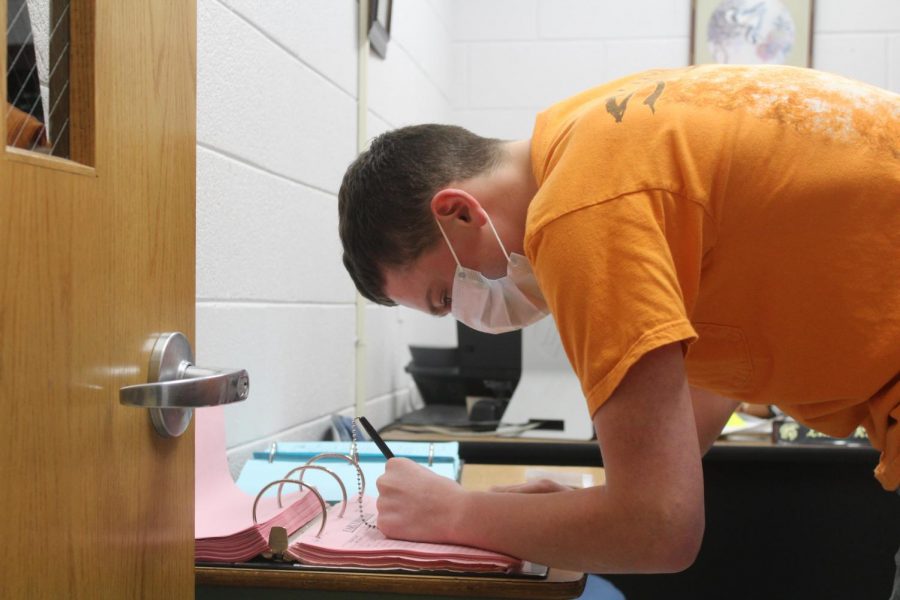Surviving flu season
A student checks out in the attendance office after visiting the nurse.
Everyone grab a mask, some hand sanitizer, and a lysol wipe because it is officially flu season. The flu this year has been one of the worst strands nationally, comparable to the H1N1 strand in the late 90’s.
The epidemic is affecting Tunstall, as well.
“Absences have topped at 96 students since late January and there has been a severe drop in attendance,” said attendance clerk Linda Rogers.
On February 12, school nurse Mrs. Florence White sent home 36 students, some with the stomach virus and most with flu-like symptoms. White said there has been about 12 flu cases confirmed by a doctor in the month of January, and 22 flu cases confirmed by a doctor in the month of February to date.
When it comes to the flu vaccination, many people are skeptical about the effectiveness of getting it. White believes that the flu vaccination has been effective in preventing the flu and helps to lessen flu symptoms.
“[The vaccination] is effective by 25%, but this is much better than not getting the shot because it lessens the flu symptoms if you do happen to get the flu,” said White.
White said she sees 10-12 students in the clinic daily, and Rogers said she receives around four calls a day from parents saying their children have contracted the flu. Those students are normally out of school for 3-4 days.
White has advice for people trying to stay well:
- Get the flu shot.
- Avoid contact with those who are sick, and if sick, stay home.
- Wash hands often with soap and hot water for at least 20 seconds.
- “Keep your environment clean. The virus can live for 20 minutes after someone has coughed, so cover your cough, and it can live on hard surfaces for 48 hours,” said White.
- Wear a mask in an environment like school or a hospital to help prevent from contracting the flu.
White said the people at the greatest risk for the flu are adults 65 and older, pregnant women, young children and infants, asthma patients, and people with Type 1 and 2 diabetes. She suggests parents not sending grandparents over the age of 65 to check out or care for students if the student has flu-like symptoms because grandparents are on the high-risk patient list.
“Working as a team here [at THS] by practicing healthy habits can and will keep viruses, colds, and other communicable diseases down,” said White.
Your donation will support the student journalists of Tunstall High School. Your contribution will allow us to purchase equipment and cover our annual website hosting costs.

Morgan Harris is a senior and this is her first year as a writer for the Trojan Messenger. Morgan enjoys going to the occasional boxing class, heavily...

Leah is a senior at Tunstall High School and this is (technically) her second year on the Trojan Messenger staff. When not vigorously studying for her...








